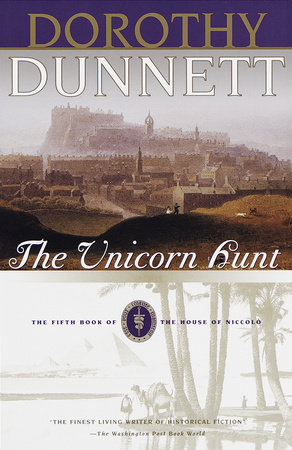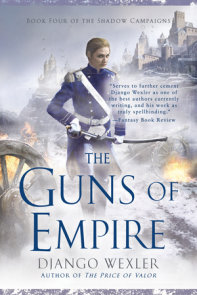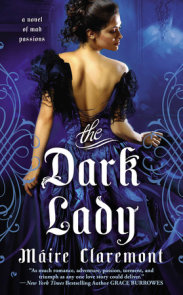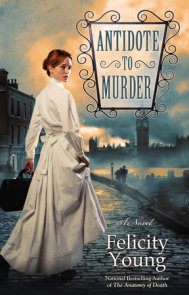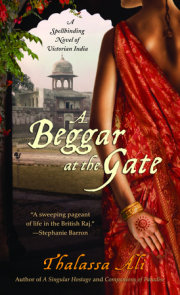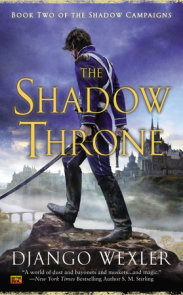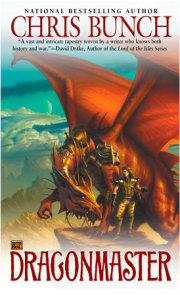READERS GUIDE
The questions, discussion topics, historical background, and author biography are designed to enhance your group’s reading and discussion of Dorothy Dunnett’s eight bestselling novels in the House of Niccol?. We hope this guide will enrich your experience of these intriguing and adventuresome works of historical fiction.Introduction
Scotland, 1468: a nation at the edge of Europe, a civilization on the threshold of the Modern Age. Merchants, musicians, politicians, and pageantry fill the court of King James III. In its midst, Nicholas seeks to avenge his bride’s claim that she carries the bastard of his archenemy, Simon St. Pol. When she flees before Nicholas can determine whether or not the rumored child is his own–or exists at all–Nicholas gives chase. So begins the deadly game of cat and mouse that will lead him from the infested cisterns of Cairo to the misted canals of Venice at carnival.Questions and Topics for Discussion
1. For Discussion: The Unicorn Hunt
In this novel the House of Niccolo series arrives decisively in Scotland, to add to its portraits of leadership, good and bad, those of the Stewart ruling family. How does Dorothy Dunnett dramatize the nature, and possible consequences for the nation, of the relationships among James and Alexander, John and Margaret and Mary? What impact does Nicholas vander Poele have on these?
2. "Tired of living life as a victim," Nicholas embarks in this novel on a complex set of "punishments" of the man he believes is his father. What do you think of this emerging side of him? Of the punishments themselves? Do his punishments hit only their target?
3. In chapter 26 of this novel Nicholas learns he has the capacity to "divine" where water is, or metals are: how unique do you think this kind of "divining," or "dowsing," is? Might you even be able to do this yourself? How is this human gift related to the more mysterious gifts, and roles, of figures like Dr. Andreas of Vesalia and Nicholai de Giorgio de Acciajuoli? Why do you think Dorothy links this gift in chapter 26 to the waking dreams, hallucinatory visions, scraps of insight from another life or realm to which Nicholas is also receptive?
4. "Walk over with me." "Go alone. I have a child." Probably the most intellectually complex and emotionally wrenching scene of the novel takes place at the top of a high mountain, climax of a pilgrimage, in chapter 41. What purpose does this scene serve its romance; the religious references (positive and negative) woven into it? What does Nicholas learn here? Why does he "free" Gelis after her response to his challenge?
5. Who, or what, is the "unicorn" of the title? Are there multiple possibilities? Several hunts? Some who occupy positions both of hunter and hunted? One version of the legend of the Unicorn requires a "virgin" as both controller and alter-ego of the unicorn–who could this description identify if anyone, among the characters of the novel?
6. For Discussion: The House ofNiccol?
Throughout the eight books of the House of Niccol? series a picture emerges of Sophie de Fleury, the mother of Nicholas, and of her centrality in the life of her son. Can you put this picture together now –the Sophie of rumor and gossip, the Sophie of Nicholas’s slowly revealed memories, of his maturer judgement, of Andro Wodman’s reporting? Are there still some mysteries and obscurities in this portrait?
7. The House of Niccol? series offers a sustained and in many ways highly sophisticated version of the changes in intellectual , political and psychological structures which mark the transition from the medieval to the modern world. But like any good set of historical novels it abounds too in individual scenes and characters of great emotional, dramatic, and visual power, or stylistic verve, "set pieces" which hang in the memory even longer, perhaps, than the plot or the author’s philosophy of history. What are some of your favorites here–scenes of comic impact or tragic illumination? Best-drawn villain or victim, most vexatious female adolescent? Most breathtaking fight or chase? Most engrossing moment of romance? Most stunning surprise?
8. At the opening of the second volume of the series, and at the closing of the last volume, the voice of an astrologer-character replaces that of the novelist-narrator. What do you make of this–some invitation to compare and contrast those two professions?
9. Some readers will have come to the Niccol? series after reading the Lymond Chronicles, to which they are a ‘prequel’; others have now finished the Niccol? series and will go on to the sequel, the Lymond Chronicles. What are some of the dividends of doing it the first way? The second way? How (after a reading of both) are these two heroes, these two worlds, these two intricate plots, alike and different?
About this Author
Dorothy Dunnett was born in 1923 in Dunfermline, Fife, Scotland. Her time at Gillespie’s High School for Girls overlapped with that of the novelist Muriel Spark. From 1940-1955, she worked for the Civil Service as a press officer. In 1946, she married Alastair Dunnett, later editor of The Scotsman.Dunnett started writing in the late 1950s. Her first novel, The Game of Kings, was published in the United States in 1961, and in the United Kingdom the year after. She has published 20 books to date, including the six-part Lymond Chronicles and the ongoing Niccolo Series. Also an accomplished professional portrait painter, Dunnett has exhibited at the Royal Scottish Academy on many occasions and has had portraits commissioned by a number of prominent public figures in Scotland.
She has also led a busy life in public service. In the past, she has been a member of the Board of Trustees of the National Library of Scotland, a Trustee of the Scottish National War Memorial, and Director of the Edinburgh Book Festival. She has also served on numerous cultural committees, and is a Fellow of the Royal Society of Arts. In 1992 she was awarded the Office of the British Empire for services to literature. She lives in Scotland and has two sons and one grandson.









